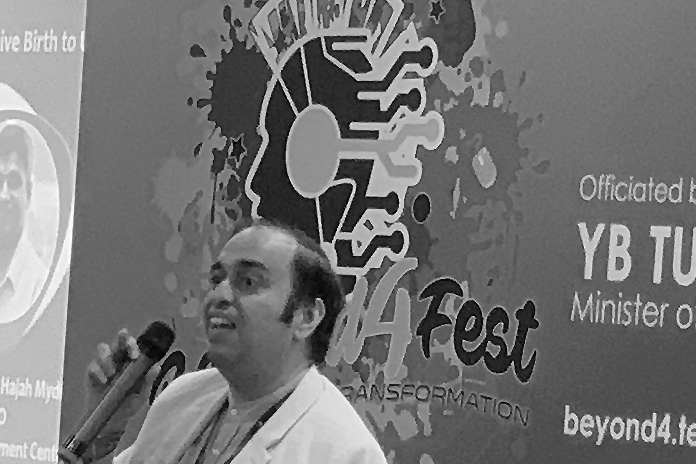
AT THE recent Beyond4Fest in Kuala Lumpur, the various sessions covered topics pertaining to the new world resulting from digitisation.
Malaysian entrepreneur Ganesh Bangah, Chairman of Commerce.Asia had some choice comments about the shape of things yesterday, today and tomorrow. Ganesh was at the helm of MOL, a company he started, which turned out to be Southeast Asia’s first internet company to be listed on NASDAQ.
Here are some sound bites from his sessions.
Corporates investing in start ups.
“Corporates invest in start ups as a show; it’s a branding programme to show they are in that space.
I do not see a meaningful, significant revenue-generating relationship.
Corporates are not able to accept minority investments. They should be more open minded. Maybe corporates should settle for 20-30% equity instead of a majority stake so that the independence of the start ups are still retained.”
Why the start up-corporate relationships don’t work.
“These relationships are not entrepreneur-to-entrepreneur relationships. They are at different ends of the relationship.
Expectations have to be somewhere in the middle.
Corporates need to understand the value of growth. Entrepreneurs need to explain growth better.”
The Venture Capital situation
We don’t have strong VCs in Malaysia. But there’s money here, for instance corporates have a lot of money. Government funds are not investing much in VCs here. They want to invest in VCs with successful track records.
They go outside Malaysia. They invest in Singapore. (Ride-hailing app Grab is the oft referred to example.)
So, more money flows into Singapore. And they invest in companies in Singapore.
Malaysia may not be a financial centre like Singapore but it can be a technology hub. We should do things that complement what Singapore is doing rather than going head to head.”
Malaysia’s start up scene is very grassroots
“I don’t believe in unicorns. They have big dreams but don’t work hard for it. I believe in cockroach entrepreneurs. They are smaller but willing to fight hard for what they want because they are hungry. Vietnam has a lot of those.“



















